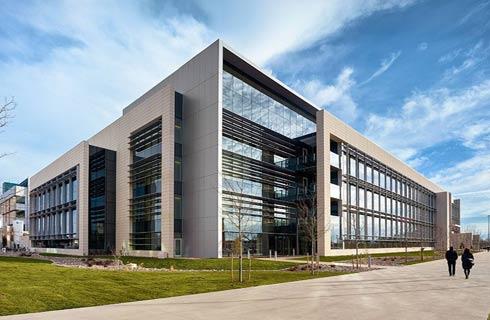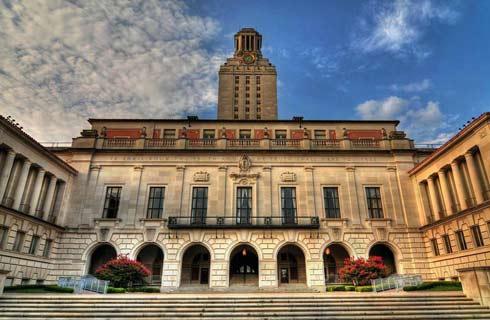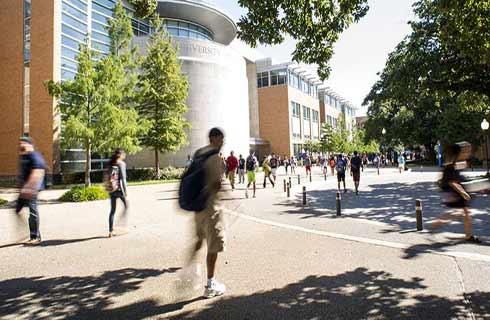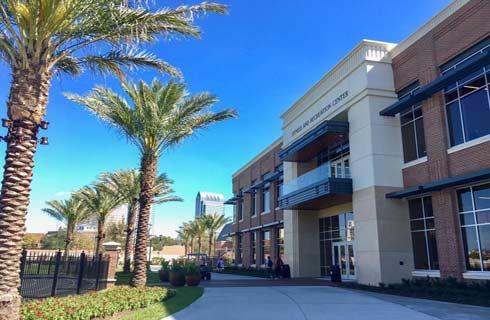- IDP China>
- 课程库>
- 工程与技术>
- 工程>
- 机械工业>
- Doctor of Philosophy in Engineering Sciences - Materials Science and Mechanical Engineering
工程科学哲学博士-材料科学与机械工程
Doctor of Philosophy in Engineering Sciences - Materials Science and Mechanical Engineering

学历文凭
Ph.D.

专业院系

开学时间

课程时长

课程学费

国际学生入学条件
Individuals who have or will have by the time of matriculation a BA, BS, or equivalent undergraduate degree (for prospective international students, a three- or four-year undergraduate degree from an institution of recognized standing) and actively seeks applicants from groups historically underrepresented in graduate schools. Applicants who are non-native English speakers and who received their undergraduate degree from an academic institution where English is not the primary language of instruction must prove their English proficiency by earning either a minimum score of 80 on the Internet based test (iBT) of the Test of English as a Foreign Language (TOEFL) or a minimum score of 6.5 on the International English Language Testing System (IELTS) Academic test. Some programs may require a higher score. Application Deadline: Dec 15.
IDP—雅思考试联合主办方

雅思考试总分
6.5
- 雅思总分:6.5
- 托福网考总分:80
- 托福笔试总分:160
- 其他语言考试:NA
CRICOS代码:
申请截止日期: 请与IDP联系 以获取详细信息。
课程简介
Materials Science and Mechanical Engineering at Harvard School of Engineering ranges from fundamental work in solid and fluid mechanics to diverse studies in materials, mechanical systems, and biomechanics. Characterizing the performance of such systems often depends on understanding behavior at several scales, requiring, for example, the mechanics of dislocations and other imperfections, grain boundaries, interfaces, and material heterogeneity. Materials scientists and mechanical engineers at Harvard are pursuing work in the mechanics of materials structures, geophysical and biological systems involved in phenomena such as elasticity, plasticity, buckling, fracture, and wave motion, biological control, or the self-organizing behavior of living systems, in particular the brain, to develop novel control strategies and biologically-inspired machines, and biomedical instrumentation, teleoperated robots, and intelligent sensors. Mechanical engineering covers a wide range of activities, including research in dynamics, fluids, materials, solids, and thermodynamics. Research is strongly interdisciplinary, with many connections to Applied Mathematics, Applied Physics, Earth and Planetary Sciences, and Chemistry and Chemical Biology.
相关申请
 预科
预科 奖学金
奖学金 实习机会
实习机会 在校学习
在校学习 跨境学习
跨境学习 校园授课-线上开始
校园授课-线上开始 在线/远程学习
在线/远程学习
开学时间&学费
学费信息仅供参考,请与IDP联系以获取详细信息
| 开学时间 | 时长 | 学费 | 地点 |
|---|
学校排名

世界排名6
数据源:
泰晤士高等教育世界大学排名
关于哈佛大学

先后诞生了八位美国总统,40位诺贝尔奖得主和30位普利策奖得主。哈佛大学商学院案例教学盛名远播。这里也培养了缔造了微软、IBM、Facebook等一个个商业奇迹的人。哈佛大学教学资源之丰富令人咋舌。哈佛大学拥有70个独立图书馆,3000英亩森林研究站,12座教学用博物馆,占地265英亩的植物园,哈佛大学有24座科学研究专用校舍,多个剧院和舞台,41支体育团队,450个学生社团……除此之外,你还能够跨界注册哈佛研究生院与职业学院,甚至邻居麻省理工的课程! 满足哈佛大学本科录取要求的学生SAT Math部分平均成绩在710到790之间;Verbal部分平均得分在700-800之间;平均SAT总分(Combined)为2225,比全美其它各大学的录取平均SAT成绩高出了41.3%。每年约有70%的学生能够获得奖学金,且申请奖学金不会影响申请者被录取的几率。
本校相关课程

公共卫生博士
学历文凭
Ph.D.
开学日期
课程费用总额


公共卫生硕士(45学分)
学历文凭
Masters Degree
开学日期
课程费用总额


工商管理硕士/医学博士
学历文凭
Combined Graduate / Doctoral Degree
开学日期
课程费用总额


法学博士/国际发展公共管理硕士
学历文凭
Combined Graduate / Doctoral Degree
开学日期
课程费用总额


法学硕士
学历文凭
Masters Degree
开学日期
课程费用总额


法学博士
学历文凭
Juris Doctor
开学日期
课程费用总额

其他相关课程

机械和机电工程学博士学位
 滑铁卢大学
滑铁卢大学学历文凭
Ph.D.
开学日期
课程费用总额


机电工程应用科学学士学位
 滑铁卢大学
滑铁卢大学学历文凭
Bachelor Degree
开学日期
课程费用总额


机械工程应用科学学士学位
 滑铁卢大学
滑铁卢大学学历文凭
Bachelor Degree
开学日期
课程费用总额


机械与工业工程哲学博士
 多伦多都会大学
多伦多都会大学学历文凭
Ph.D.
开学日期
课程费用总额


机械与工业工程学硕士
 多伦多都会大学
多伦多都会大学学历文凭
Masters Degree
开学日期
课程费用总额


机械和工业工程应用科学硕士
 多伦多都会大学
多伦多都会大学学历文凭
Masters Degree
开学日期
课程费用总额










 美国
美国